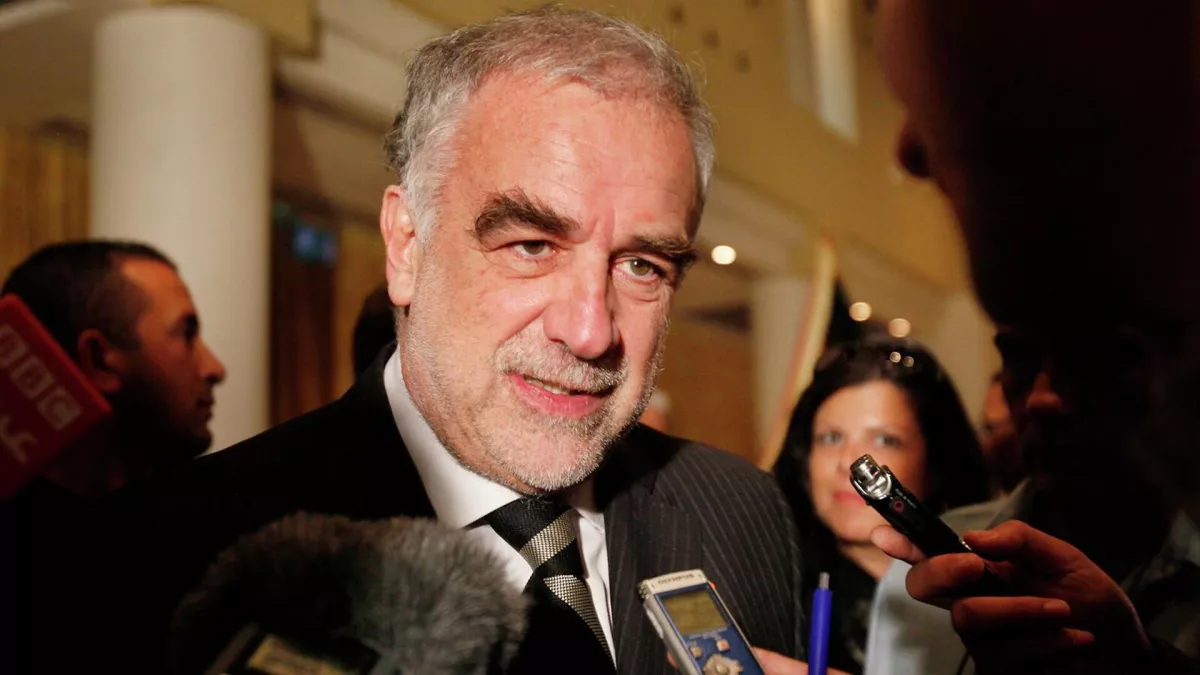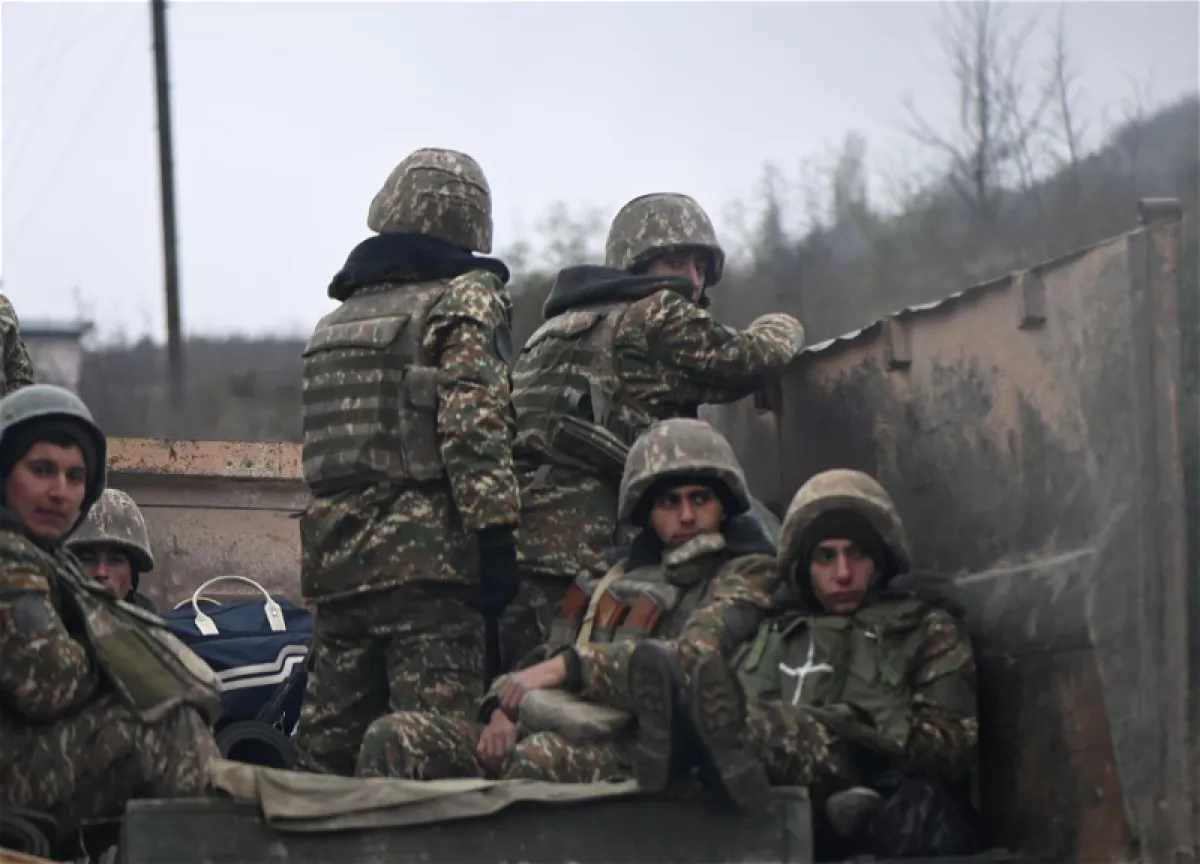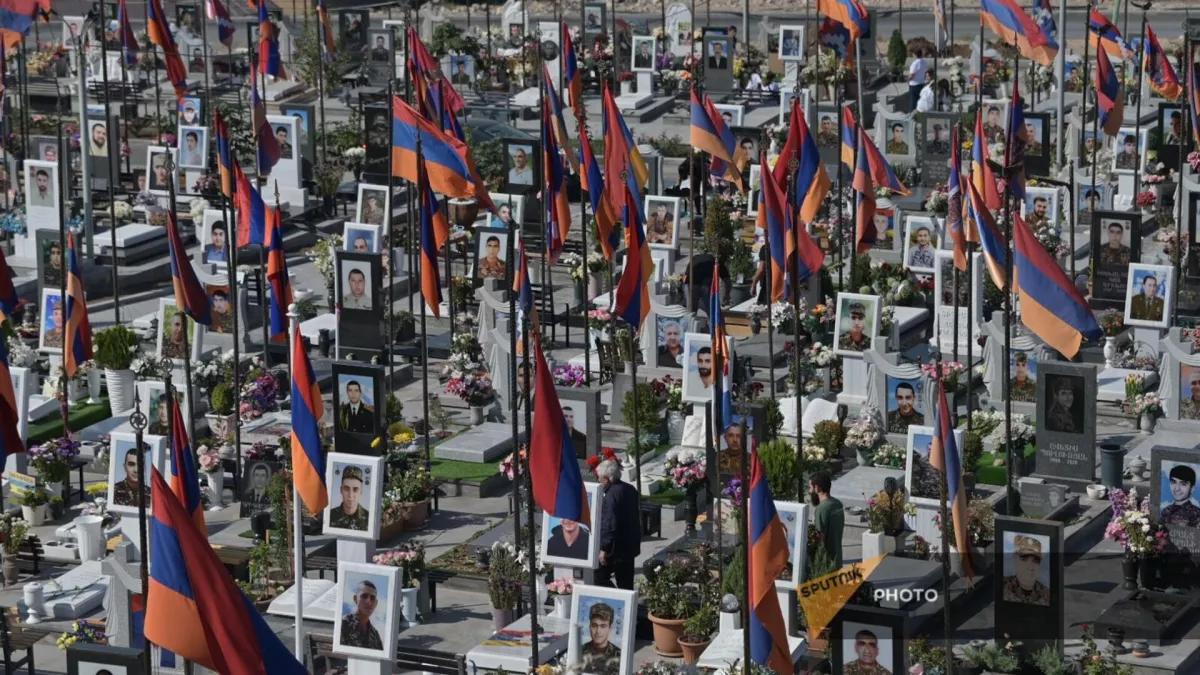Tepid advocacy for mythical claims: Ocampo’s lacklustre push for Armenian lobby Same money, less enthusiasm
The Armenian Diaspora persists in throwing money away, lavishing funds on various lobbyists who champion the Armenian cause. Psychologically, this behaviour is easy to understand — it's tough for them to accept that their lifelong efforts might have been in vain, so they convince themselves that the struggle is ongoing. By paying lobbyists, Armenians seek comfort in the illusion that their cause is still advancing.
At the heart of their efforts is the principle of "water grinds stone." This explains their relentless attempts to craft cases like “the rights of Artsakh Armenians” or “ethnic cleansing of Karabakh Armenians.” The ultimate aim is to relocate Armenians who voluntarily returned to Armenia under international supervision and then shift the focus to discussing some form of status for "Nagorno-Karabakh."

In their bid to catch a train that has long since departed, Armenian revanchists have once again turned to a figure who has not only earned infamy as an adventurer and charlatan but has also demonstrated the futility of the Armenian case through his ineffectual endeavours. According to Armenian media, "a number of representatives of civil society from Armenia and 'Artsakh' met with Luis Moreno Ocampo, a Doctor of Law and former prosecutor of the International Criminal Court."
During the meeting, they discussed the political and legal instruments available to advocate for the rights of "Artsakh."
It is worth noting that Ocampo himself appears increasingly disillusioned with his own statements, which now come across as monotonous, uninspired, and politically impotent. His once fervent rhetoric has given way to a lackluster performance in return for his fee.
The Argentine lawyer highlighted the importance of the UN Convention on Genocide as a tool for the legal protection of stateless peoples. However, this argument falls flat for two reasons: first, proving genocide is impossible as there has been no genocide; and second, Armenians are not a stateless people, as global powers have established a state for them on the historic lands of Azerbaijan.
Ocampo's sole effective contribution was his remark that the UN Special Advisor on the Prevention of Genocide has identified a risk of genocide in "Artsakh," suggesting an obligation for international action.
Ocampo's reference to Alice Wairimu Nderitu’s statement from September 21 of last year, where she voiced concerns about the risk of genocide in the South Caucasus, is a misplaced attempt to lend weight to his arguments. Nderitu used the term "risk of genocide" to describe the potential escalation of a tense situation at that moment. However, this escalation never materialized.
The Azerbaijani military's one-day counter-terrorism operation led to the swift removal of the remaining Armenian forces and the collapse of the so-called "self-defence forces of Nagorno-Karabakh," with no civilian casualties reported. Nderitu's fears proved to be baseless. Therefore, Ocampo’s use of Nderitu's statement is nothing more than an anachronism, irrelevant to the current reality.

Moreover, Azerbaijan has never deprived Armenians of the right to return to the Karabakh region of Azerbaijan, but this right is linked to a legal condition - acceptance of Azerbaijani citizenship. And quite rightly, in such a case Armenia would also be obliged to accept two hundred thousand Azerbaijanis expelled from the republic in the late 1980s.
Let’s revisit Ocampo's subsequent arguments.
Ocampo suggested that it would be crucial to address the issue of prisoners at the UN climate change conference (apparently referring to COP29 - Ed.) and claim that Azerbaijan is holding "innocent people" in its prisons. This notion is laughable. No court in the world would recognize Ghukasyan, Harutyunyan, and Vardanyan as innocent, as no legal body can endorse separatism.
Ocampo also raised the issue of the so-called "genocide of 1915," noting that while it is recognized, it has had no real consequences. As a lawyer, Ocampo should refrain from misleading Armenians and instead explain that this recognition has not led to any judicial acknowledgement of genocide.
In conclusion, the so-called expert declared that despite Azerbaijan's claims, the "Artsakh" people are the rightful owners of the land, and the outcome will depend on their willingness to fight. He urged the "Artsakh" people to be more proactive in defending their supposed rights.

If I were an "Artsakh" man, I would feel disheartened by this so-called inspirational appeal, for the affluent lawyer's call to action effectively signals his decision to distance himself from their cause.
Ocampo’s presentation indeed lacked vigour. Either he’s inadequately compensated or, more likely, he has run out of substantial arguments. And truly, what more can be said when Azerbaijan’s armed forces have already made the case? To clarify, our military did not engage with civilians but repelled the invading forces from our territory. The Armenian civilians, it seems, departed, perhaps unable to envision coexistence with the people from whom they stole land and life. But that, evidently, is no longer our concern.








